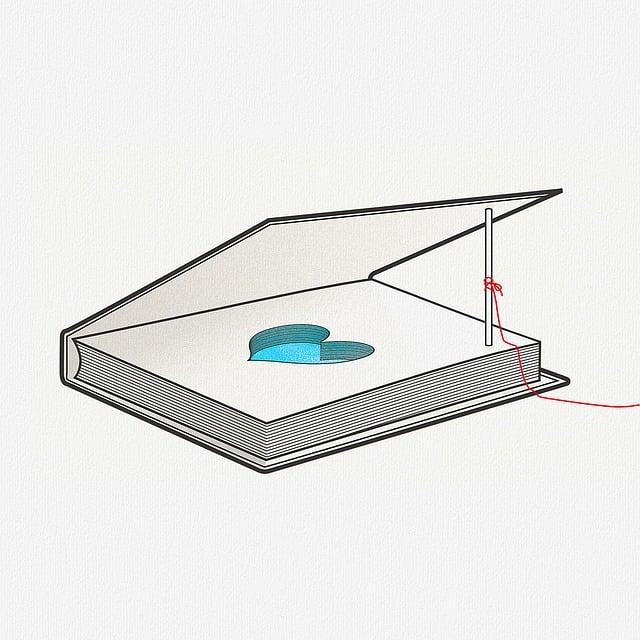Uncovering the mysterious relationship between bruxism and gum recession: discover how grinding your teeth can affect your gums!
1. The Surprising Connection: Unveiling the Link between Bruxism and Gum Recession
Bruxism, commonly known as teeth grinding, has long been associated with dental problems such as worn enamel, tooth sensitivity, and jaw pain. However, a lesser-known connection has recently come to light: the link between bruxism and gum recession. Gum recession, the gradual loss of gum tissue around the teeth, can lead to tooth sensitivity, tooth decay, and even tooth loss if left untreated.
So, how does bruxism contribute to gum recession? The excessive force and friction applied to the teeth during grinding can gradually wear down the gum tissue and cause it to recede. Additionally, the constant clenching and grinding can put stress on the surrounding bone structure, further contributing to gum recession.
While not everyone who grinds their teeth will experience gum recession, it is important to be aware of the potential risks. If you suspect you have bruxism or notice signs of gum recession, it is crucial to consult with a dentist or dental professional. They can provide a thorough evaluation and recommend appropriate treatment options, such as:
- Wearing a custom-made nightguard to protect the teeth and gums during sleep.
- Stress management techniques to help reduce teeth grinding habits.
- Addressing any underlying dental issues, such as misaligned teeth, that may be contributing to bruxism.
- Regular dental cleanings and check-ups to monitor and address any developing gum recession.
By understanding the surprising connection between bruxism and gum recession, individuals can take proactive steps towards preserving their oral health and preventing further damage. Don’t let teeth grinding go unnoticed – seek professional guidance and maintain a healthy smile for years to come!
2. Understanding Bruxism: Unraveling the Truth behind Excessive Teeth Grinding
Bruxism, commonly known as teeth grinding, is a widespread dental condition with various underlying causes. Understanding this phenomenon is essential to prevent irreversible damage to your teeth and promote overall oral health. Here, we uncover the truth behind excessive teeth grinding.
Causes:
- Tension and stress: Bruxism often stems from anxiety, stress, or tension. These emotions can lead to clenching or grinding your teeth unconsciously, especially during sleep.
- Misaligned teeth: Irregularities in your bite or malocclusion can cause excessive grinding as your jaw tries to find a comfortable resting position.
- Medication or substances: Certain medications, such as antidepressants, or substances like caffeine and alcohol, can trigger bruxism or exacerbate the condition.
Symptoms:
- Worn-down teeth: When you grind your teeth, the constant friction can result in flattened, chipped, or fractured teeth. Regular dental check-ups can help identify these signs.
- Jaw pain or headaches: Bruxism strains the muscles and joints surrounding the jaw, leading to discomfort, headaches, or earaches, particularly in the morning.
- Inflammation and sensitivity: Excessive grinding may cause gum inflammation and increased tooth sensitivity to hot or cold stimuli.
By recognizing the causes and symptoms of bruxism, you can take proactive steps to address this issue and protect your dental health. Consulting a dentist is crucial for an accurate diagnosis and to explore potential treatments tailored to your specific situation.
3. The Hidden Dangers: Exploring the Negative Impact of Bruxism on Gum Health
Bruxism, more commonly known as teeth grinding, can have a detrimental impact on gum health. This involuntary habit often occurs during sleep and can result in a host of problems for your gums. Understanding and addressing the hidden dangers of bruxism is crucial for maintaining optimal gum health.
Here are some negative effects that bruxism can have on your gums:
- Receding gums: The excessive pressure exerted during teeth grinding can lead to gum recession. This occurs when the gum tissue pulls away from the teeth, exposing the sensitive tooth roots. Receding gums not only cause sensitivity but also increase the risk of tooth decay and tooth loss.
- Gum inflammation: Bruxism can cause inflammation in the gums, also known as gingivitis. The constant grinding motion and pressure can irritate the gum tissues, making them more prone to redness, swelling, and bleeding.
- Pocket formation: In advanced stages of bruxism, deep pockets can form between the gums and teeth. These pockets provide a breeding ground for harmful bacteria, leading to periodontal disease.
It is important to recognize the signs of bruxism, such as headaches, jaw pain, worn tooth enamel, and flattened teeth. If you suspect you may suffer from bruxism, consult with a dental professional. They can recommend treatment options to alleviate the negative impact of bruxism on gum health.
4. Unraveling the Mechanism: How Bruxism Induces Gum Recession
Bruxism, also known as teeth grinding or clenching, has long been associated with various dental problems, including gum recession. It is important to understand the mechanism by which bruxism induces gum recession in order to effectively address this issue.
1. Increased Pressure on Gums: The forces exerted during bruxism can place excessive pressure on the gum tissue. This constant pressure compromises the blood flow to the gums, leading to recession over time.
2. Wear and Tear of the Gum Tissue: The repetitive grinding or clenching motion exposes the gums to abnormal wear and tear. This can gradually erode the gum tissue, making it more susceptible to recession.
3. Bone Resorption: Bruxism can also lead to bone loss in the jaw, a process known as bone resorption. As the bone supporting the gums weakens, the gum tissue becomes more vulnerable to recession.
Understanding the intricate relationship between bruxism and gum recession is pivotal in guiding effective treatment strategies. By tackling bruxism itself and managing its causes, we can reduce the likelihood of gum recession and promote overall dental health.
5. The Grinding Effect: Delving into the Damaging Forces Exerted on Gums during Bruxism
Bruxism, commonly known as teeth grinding, can have a devastating impact on our oral health, particularly on the delicate gums. In this section, we will explore the damaging forces that are exerted on gums during bruxism and their long-term effects.
1. Receding gums: The consistent grinding motion places excessive pressure on the gums, causing them to gradually recede. As the gums recede, the roots of the teeth become exposed, leading to increased sensitivity, root decay, and tooth loss.
2. Gum inflammation and swelling: The continuous friction between the teeth not only erodes the enamel but also irritates and inflames the gums. Swelling and redness are common symptoms, making it vital to address bruxism to prevent the onset of gum disease.
3. Gum recession-induced tooth sensitivity: As the gums recede, the sensitive root surfaces are exposed to external stimuli, such as hot and cold foods or drinks. This heightened sensitivity can significantly impact daily activities like eating, drinking, and even brushing.
It is crucial to address bruxism promptly to mitigate the damaging forces exerted on our gums. Seeking professional help, using a nightguard, and practicing stress reduction techniques are some effective ways to protect our gums and maintain optimum oral health.
6. The Weakening Cycle: Analyzing the Continuous Trauma of Bruxism on Gum Tissue
Bruxism, commonly known as teeth grinding or clenching, can inflict a significant toll on gum tissue. This relentless habit creates a continuous cycle of trauma that weakens the gums and can lead to various dental issues. Understanding the impact of bruxism on gum tissue is crucial for sufferers to seek timely intervention and minimize further damage.
Here are the key aspects of the weakening cycle caused by bruxism:
- Microtears: The excessive force exerted during bruxism episodes can cause microscopic tears in the gum tissue. These tears may not be visible to the naked eye but can lead to inflammation, sensitivity, and discomfort.
- Gingival Recession: Over time, the repeated trauma from bruxism can push the gum tissue away from the teeth, resulting in gingival recession. This exposes the tooth roots, making them vulnerable to decay and causing tooth sensitivity.
- Blood Circulation Impairment: Bruxism-induced gum trauma can compromise blood circulation to the affected areas. Inadequate blood flow diminishes the gum tissue’s ability to heal itself, further exacerbating the weakening cycle.
It’s worth noting that the weakening cycle of bruxism on gum tissue is not limited to these aspects alone. The cumulative effects can vary from individual to individual, with some experiencing more severe consequences. Regular dental check-ups and professional guidance are essential to monitor the condition and implement preventive measures to protect gum tissue from further trauma.
7. Beyond the Teeth: How Bruxism Affects the Supporting Structures of Your Smile
Bruxism, commonly known as teeth grinding, not only affects the teeth but also has a significant impact on the supporting structures of your smile. Understanding how bruxism can impact these structures is essential for proper treatment and prevention.
Jaw Muscles: Bruxism puts excessive stress on the jaw muscles, causing soreness, pain, and discomfort. Over time, this can lead to the development of temporomandibular joint disorder (TMJ), which affects the joint connecting the jaw to the skull. Symptoms of TMJ disorder may include jaw stiffness, clicking or popping sounds, and difficulty opening and closing the mouth.
Gums: The constant grinding and clenching of teeth can also have adverse effects on the gums. Bruxism can cause the gums to become tender, swollen, and even recede. Receding gums expose the tooth roots, making them more susceptible to decay and sensitivity.
Jawbone: The excessive force exerted during teeth grinding can damage the surrounding jawbone. This can lead to bone loss and weaken the overall structure supporting your teeth. As a result, you may experience loose teeth, changes in your bite, or even tooth loss.
Addressing bruxism promptly is crucial to prevent further damage to your smile and its supporting structures. If you suspect you have bruxism, consult with your dentist for an accurate diagnosis and a tailored treatment plan.
8. Unmasking the Symptoms: Recognizing the Telltale Signs of Bruxism-Related Gum Recession
Signs of Bruxism-Related Gum Recession:
Gum recession can be a tricky condition to identify, especially when it stems from bruxism, or teeth grinding. Many people remain unaware of this connection, but recognizing the telltale signs is crucial for early detection and treatment. Here are some key symptoms to watch out for:
- Increased Tooth Sensitivity: If you experience sudden sensitivity to hot or cold sensations, it could be a sign of gum recession caused by bruxism. Receding gums can expose the tooth roots, making them more sensitive to temperature changes.
- Longer Looking Teeth: One noticeable sign of gum recession is the appearance of longer teeth. As the gums recede, more of the tooth’s root becomes exposed, resulting in teeth that appear longer than normal.
- Gum Inflammation and Bleeding: If you notice your gums are red, swollen, or bleed easily, bruxism could be the culprit. Excessive pressure from teeth grinding can irritate the gums and lead to inflammation and bleeding.
- Loose Teeth: With progressive gum recession, the supporting tissues surrounding the teeth can weaken, causing teeth to feel loose or unstable. This is a clear indication of possible bruxism-related gum recession.
Identifying these early signs is crucial, as untreated gum recession can lead to serious dental issues, including tooth loss. If you experience any of these symptoms, it’s important to consult with a dental professional who can provide an accurate diagnosis and recommend the appropriate treatment plan.
9. Seeking Relief: Understanding the Importance of Proper Diagnosis and Treatment for Bruxism-Induced Gum Problems
The importance of proper diagnosis and treatment for bruxism-induced gum problems cannot be overstated. Without proper intervention, this condition can lead to serious oral health complications and discomfort. Here are some key points to consider:
1. Early detection is crucial: By recognizing the signs and symptoms of bruxism-induced gum problems, such as gum recession, tooth sensitivity, and jaw pain, you can seek appropriate treatment before the condition worsens.
2. Professional diagnosis: Consult a dentist who specializes in bruxism to confirm the presence of the condition. They will conduct a thorough examination, which may include X-rays and a review of your medical history, to accurately diagnose the problem and devise an effective treatment plan.
3. Tailored treatment approach: Once diagnosed, your dentist will recommend a personalized treatment plan based on the severity of your condition. Treatment options may include:
- Wearing a custom-fitted nightguard to protect your teeth and alleviate grinding during sleep.
- Orthodontic treatment to realign the bite and relieve pressure on the gums.
- Physical therapy exercises and jaw relaxation techniques to reduce muscle tension.
- Medications, such as muscle relaxants or pain relievers, to manage discomfort.
Remember, addressing bruxism-induced gum problems promptly and effectively can help prevent further damage and improve your overall oral health. Speak to a dental professional to receive the proper diagnosis and treatment that you need.
10. Preserving Your Smile: Practical Strategies to Minimize Bruxism and Prevent Gum Recession
Bruxism, commonly known as teeth grinding, can be a major culprit behind gum recession. Adopting practical strategies can help minimize its impact on your smile and prevent further damage. Here are some effective measures to preserve your dental health:
- Wear a Nightguard: Investing in a custom-fitted nightguard can go a long way in protecting your teeth from the harmful effects of grinding, such as gum recession. The nightguard acts as a cushion, absorbing the pressure and providing a barrier between your upper and lower teeth. Consult your dentist to determine the best nightguard option for your specific needs.
- Stress Management: Since stress can contribute to teeth grinding, practicing stress-reducing techniques can help prevent bruxism. Engage in activities like yoga or meditation to relax your mind and body, reducing the likelihood of grinding your teeth during sleep. Additionally, making time for hobbies and self-care can significantly alleviate stress levels.
- Avoid Stimulating Substances: Certain substances like caffeine, alcohol, and tobacco are known to exacerbate bruxism. Minimizing or eliminating these stimulants from your diet can help reduce teeth grinding and prevent gum recession. Opt for healthier alternatives like herbal tea or decaffeinated beverages.
By implementing these practical strategies into your daily routine, you can effectively minimize the impact of bruxism on your smile and prevent gum recession. Remember, early intervention is crucial, so if you suspect teeth grinding, it’s important to consult your dentist for a personalized treatment plan.
In conclusion, bruxism can lead to gum recession due to the excessive grinding and clenching of teeth. This condition puts stress on the gums, resulting in their gradual erosion. Seeking early diagnosis and appropriate treatment is vital to prevent further damage and maintain optimal oral health. Remember, a healthy smile starts with awareness and proper dental care!




